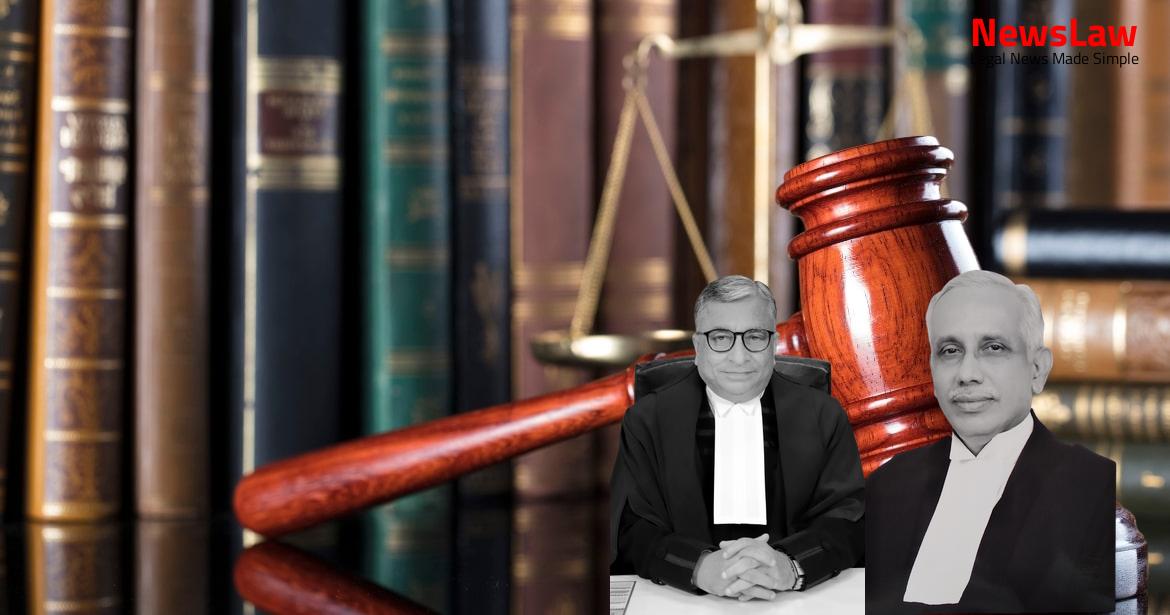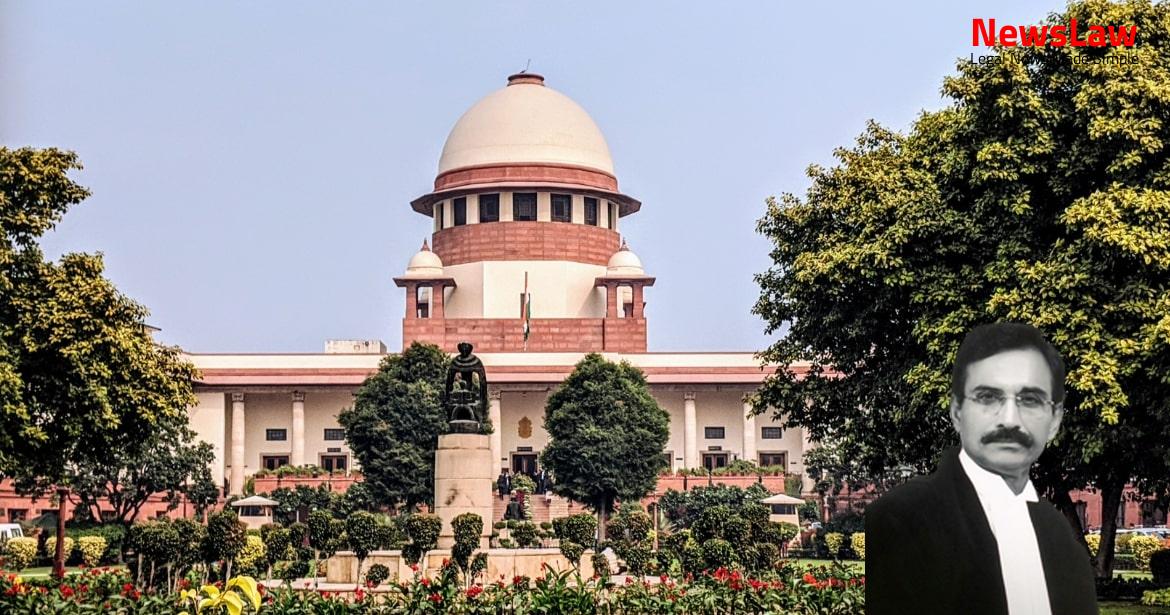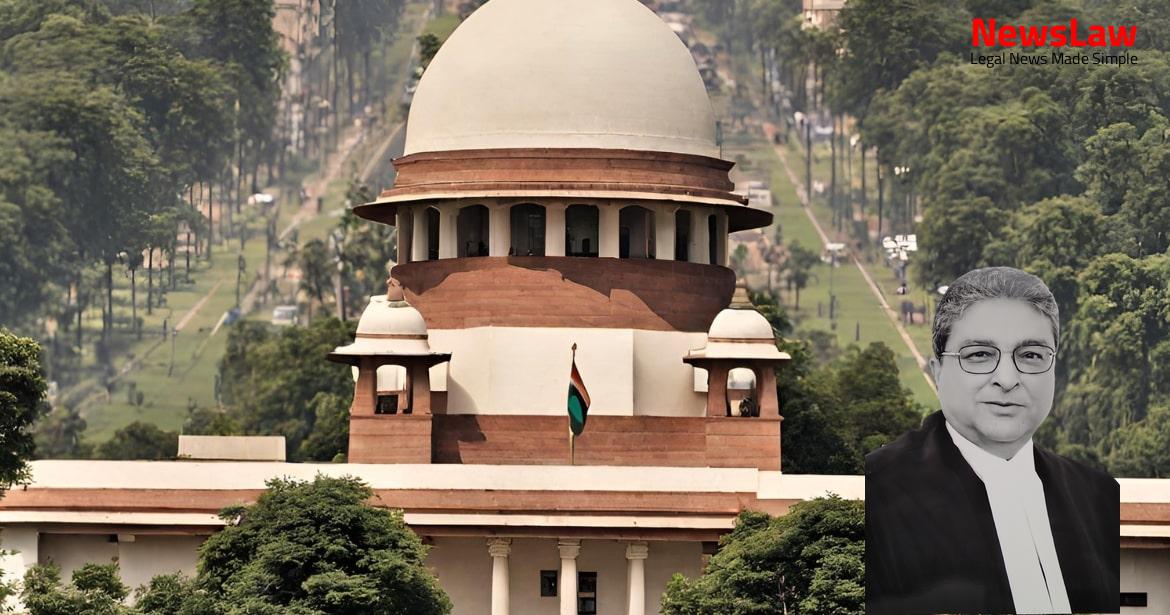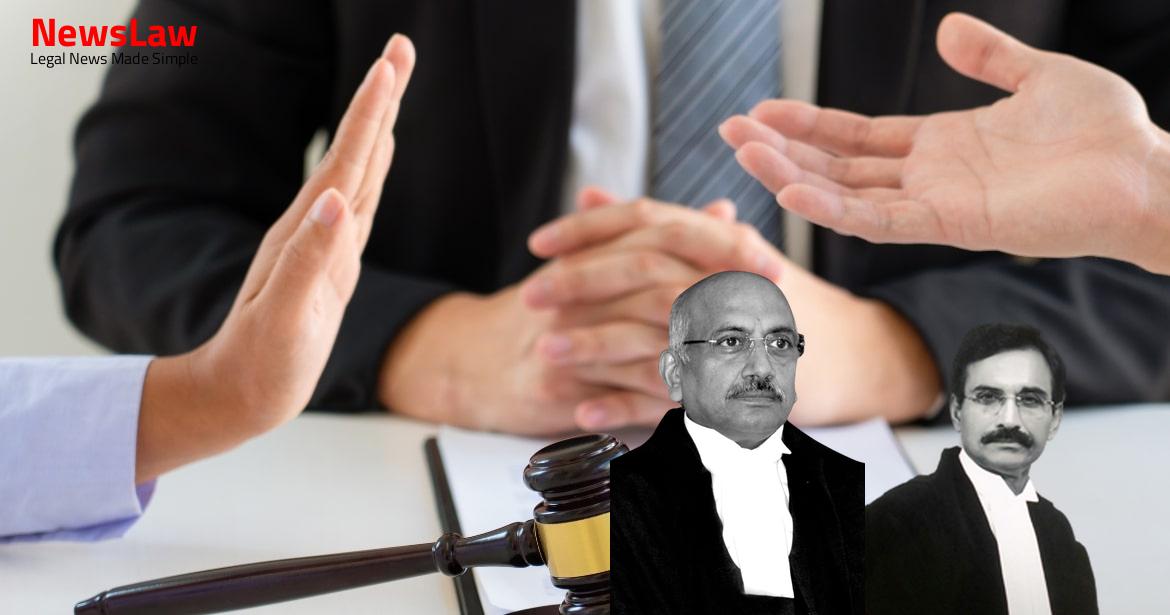Explore the intricate legal analysis provided by the court in a recent judgment regarding the regularization of irregular appointments. The case delves into the principles, exceptions, and conditions for regularization, shedding light on the complexities of employment law. Stay tuned to unravel the court’s insightful legal analysis on this significant matter.
Facts
- The appellant was appointed as an Assistant Music Teacher on a leave vacancy in 1984.
- The terms of the appointment specified it was temporary until the regular incumbent rejoined.
- The appellant filed a Writ Petition challenging the modified terms of appointment and won in 2006.
- The appellant’s services were terminated in 1988 when the regular incumbent did not return.
- The appellant’s case for regularization was rejected by the Joint Director of Education.
- The service of the appellant was eventually regularized by the respondent.
- Despite multiple legal battles, the judgment in favor of the appellant remained unchallenged and final.
- The appellant continued on the post without interruption until 2020.
- The appellant sought regularization in accordance with the UP Regularization Rules, 2001.
- A subsequent Writ Petition was filed by the appellant challenging the order.
- The Writ Petitions filed by the appellant were allowed, and the consequences were to be followed.
- The Division Bench of the High Court allowed the Special Appeal filed by the State, stating the appellant was employed on a temporary basis against a leave vacancy, which was considered an illegal ‘stop-gap nature’ appointment.
- The Regularization Rules, 2001 were analyzed by the Division Bench, finding no provision for regularization of an appointment made against a leave vacancy.
- The Single Judge’s judgment affirmed the appellant’s right to the post based on her long tenure and previous court rulings acknowledging her entitlement.
- The Division Bench’s decision on May 7, 2018, set aside the Single Judge’s judgment, leading to the appellant’s current appeal.
- The Single Judge’s order from May 15, 2014, allowed the writ petition based on the appellant’s extensive experience and educational qualifications, considering her entitled to the post.
- The appellant’s claim for regularization was initially rejected citing her appointment on a leave vacancy, which was deemed ineligible for benefits under the 2001 Rules.
- The appellant’s right to the post was confirmed in multiple court rulings, leading to the application of the Regularization Rules, 2001.
- The interpretation of the principle set in the Umadevi (3) case was misunderstood by the Division Bench, as clarified by the Constitution Bench, emphasizing that final judgments between parties should not be reopened.
- The final judgment from January 23, 2006, remained binding between the parties despite subsequent legal developments, directing the State-respondent to consider the appellant for regularization under the relevant Rules.
Also Read: Balancing Civil Disputes and Criminal Offenses
Arguments
- Reliance placed on the Constitution Bench Judgment in Rudra Kumar Sain vs. Union of India.
- Observations from the Constitution Bench Judgment regarding the appointment process and its duration.
- University’s contention regarding regularization post the judgment in Secretary, State of Karnataka vs. Umadevi.
- University’s argument on the non-availability of sanctioned posts for regularization.
- Assertion that Gujarat Agricultural University judgement does not hold after Umadevi judgement.
Also Read: Legal Analysis of Abetment of Suicide Allegations
Analysis
- Regularization of irregularly appointed employees with ten years of service in duly sanctioned posts is a one-time measure.
- Regular recruitments should be undertaken to fill vacant sanctioned posts where temporary employees are currently employed.
- Judges first decide factual disputes between parties and then apply relevant laws to those facts.
- Regularization of services of employees must be considered on merit and in line with settled principles by the Court.
- A judgment contrary to principles settled by the Court loses its status as a precedent.
- Letters Patent Appeal following a Writ Petition cannot challenge a previous judgment of the same High Court.
- Temporary employees cannot claim regularization unless appointed in accordance with service rules and constitutional provisions.
- A Court’s decision on a question of law is binding and cannot be challenged in subsequent cases.
- Reopening concluded judgments is an abuse of court process and undermines the administration of justice.
- Reconsideration of a finalized judgment by the Court is generally not allowed.
- Appeals can be pursued if aggrieved by the decision of the Judge.
- The exception to the general principles against regularization is carved out in the case of Umadevi(3) when certain conditions are fulfilled.
- The Division Bench of the High Court found the appellant’s appointment to be illegal as it was dehors the rules and without open competitive selection.
- The Division Bench held that the appellant’s continuation in service under an interim order did not entitle her to regularization.
- The conditions for an appointment to be considered illegal or irregular were laid down in the case of State of Karnataka & M.L. Kesari.
- The judgment in Umadevi(3) does not overrule the judgment in Gujarat Agricultural University, as clarified by the court.
- The right to regularization for daily wagers in accordance with the scheme continues till all eligible ones are absorbed.
- The nature of the appellant’s appointment was found to be irregular, not illegal, thereby entitling her to regularization.
- In cases where appointments are irregular but not illegal, employees may still be entitled to regularization.
- Regularization as a one-time measure can be for those irregularly appointed and who have worked for 10 years or more in duly sanctioned posts.
- Exception to general principles against regularization as per Umadevi case
- Conditions for regularization: employee worked for 10+ years in sanctioned post without court protection, appointment not illegal but irregular
- State government or its instrumentality should have employed and continued employee for 10+ years
- Appointment of employee should not be illegal, only irregular
- Appointments against sanctioned posts with prescribed qualifications but without open competitive selection process are considered irregular
- Paragraph 11 of the judgement was discussed.
- Mr. P.S. Patwalia represented the university as the learned senior counsel.
- Mr. Nachiketa Joshi represented the respondents as the learned counsel.
- The respondent cannot raise a new argument in the appeal that was not presented before the Single Judge in the previous proceedings.
- No order for costs is being made in this case.
- The State had the opportunity to raise the contention in the earlier proceedings but did not do so.
Also Read: Legal Analysis of Presumption in Abetment of Suicide
Decision
- The appellant is entitled to be regularized with all consequential benefits within three months.
- The appeal has been allowed.
- The impugned judgment of the Division Bench of the High Court is not sustainable and is set aside.
Case Title: NEELIMA SRIVASTAVA Vs. THE STATE OF UTTAR PRADESH (2021 INSC 410)
Case Number: C.A. No.-004840-004840 / 2021



